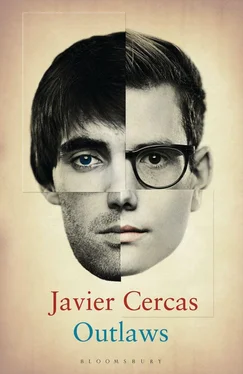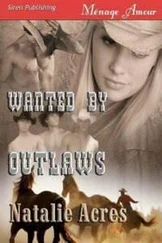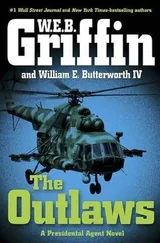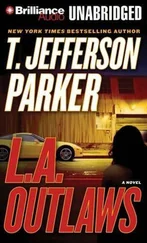‘Were you worried?’
‘No. I don’t think so. Why?’
‘Well, you said Zarco and María didn’t seem like a very believable couple. Besides, with the expectation Zarco’s weekend release had raised, with all the correctional authorities counting on its success and the superintendent opposed to it, any mistake could ruin your whole half-year’s work.’
‘That’s true. But it’s also true that I trusted Zarco and was convinced that he wanted to be free and wasn’t going to do anything stupid. Although maybe you’re right: maybe I was more worried than I remember, or than I was able or willing to recognize. I don’t know. In any case I don’t remember that as a special weekend either. What I do remember is that after dropping Zarco off I suggested to Tere that we go for coffee and that she turned down my invitation alleging that she had two exams on Tuesday and she had to study, and then I drove her home; I also remember that I spent the rest of Saturday and Sunday indoors without seeing anyone but my daughter, and that on the Monday morning, after Zarco had returned to prison the previous evening, I personally wrote the request for a partial pardon. At midday I went to see Zarco to get him to sign it, and in the afternoon I sent all the documentation to the Ministry of Justice.
‘Zarco began to enjoy regular outings like that, at first every three weeks, then every two weeks, then once a week. Naturally, I hoped that these increasing tastes of freedom would improve his mood and his situation in the prison; what happened was exactly the opposite: instead of diminishing or dying down, Zarco’s anxiety did nothing but grow, increasingly uncontrollable and increasingly absurd. One example: I managed to get the superintendent to keep the two guards who according to him were making his life impossible away from him, but he immediately began to complain about two other guards. Another example: each time I visited him I begged him to avoid any kind of conflict, but he answered as if he hadn’t heard me or as if I’d said the opposite of what I’d said, talking to me about complaints that his insubordination and protests provoked among the prison personnel, and making him feel increasingly proud of them. I still didn’t entirely understand the way Zarco worked, or I didn’t want to understand it: since our first encounter at the prison I was aware of the duplicity or internal contradiction that was tearing him up — the contradiction between the legend, or the myth, and the reality, between the persona and the person; but, in spite of this precise intuition, I didn’t accept that, as the prison superintendent had told me very early, the press campaign that I’d initiated to achieve Zarco’s freedom accentuated instead of attenuating that contradiction, because it resuscitated, unfortunately for the person, the legend and the myth of a persona by then almost redundant.
‘I suppose that the petulant exhibitionism with which Zarco kept me informed at the time, just when he began to start getting out, of his outrages and the degradation of his life in prison, has in part to be attributed to this resurrection. But being informed of it didn’t mean I was able to stop it. When Zarco was out on release we didn’t see each other, and, no matter how much I asked him later, he didn’t talk to me about those free weekends (only prison matters seemed to loosen his tongue). During the week I couldn’t do much to fix things either: in our conversations in the visiting room I could only listen to him, put up with his unpleasantness, swaggering and rudeness and try to calm him down and keep his spirits up and give him encouraging news, and outside the prison all I could do was keep the campaign in favour of getting him pardoned alive and carry on accompanying María (with or without Tere) on her promotional interviews. By then, I also had to go back to taking serious care of things at the office. I’d spent over half a year not doing so, working almost exclusively on Zarco’s case, and in that time a certain amount of chaos had been generated that neither Cortés nor Gubau had managed to sort out and that had led to us losing some clients (“I knew this thing with Zarco was going to get us in shit,” Cortés used to say as we had our Friday evening beers at the Royal. “But I didn’t think it would be this bad”). So I went back to handling the important cases, back to travelling frequently, back to staying late working at the office. These changes affected my relationship with Tere. Not that we stopped seeing each other, but we saw less of each other, and so I started insisting that we move our midweek dates to the weekends, which was when I could have more free time available; but Tere always flatly refused: she said that weekends were the only time she had to study and besides, if we moved our dates to the weekends, they wouldn’t be secret any more. That’s silly, I replied. And your daughter? Tere argued. She doesn’t come every weekend, I answered. Besides, she wasn’t born yesterday, don’t you think she already knows I’m seeing someone. . Not to mention that we could go to your house or anywhere else. Tere wouldn’t give in: she would not let me go to her house, or see me on the weekends, or meet my daughter or my friends. Anyone would say you’re ashamed of me, I said to her once, exasperated by her intransigence. Tere looked surprised and then smiled an enigmatic smile (or that’s what it seemed like to me), but didn’t say anything.
‘All this — Zarco’s personal degradation, my return to proper work at the office and a slight cooling off of my relationship with Tere — explains what happened one night at the end of May or beginning of June, when Zarco had had several consecutive weekend releases. It was an important night for Zarco and for me. I’d gone to bed early and had been asleep for a while when the phone rang. I answered. Cañas? I heard. Speaking, I answered. It’s Eduardo Requena, said the prison superintendent. Sorry for calling so late. Still lying in bed and in the dark, I suddenly came back to reality: it was Sunday night and very late; I immediately thought something had happened with Zarco. Not to worry, I said. What’s happened? I’m calling about Gamallo, the superintendent answered. It’s midnight and he’s not back. He’s supposed to be in his cell by nine. If he doesn’t show up before breakfast we’ll be in trouble.
‘Requena and I barely exchanged another phrase or two; there was nothing else to say: Zarco hadn’t returned from his weekend release and, unless I found out where he’d gone and managed to get him back to the prison, the campaign for his liberty would go down the drain. I hung up the phone, turned on the light, sat up in bed, thought for a moment, picked up the phone and called María, who said when she answered that she wasn’t sleeping but watching TV. I told her what Requena had told me and, with a voice that revealed neither surprise nor alarm, she explained that she didn’t understand and that it wasn’t yet nine o’clock when she dropped Zarco off two hundred metres from the prison door. He said he wanted to go for a walk before going in, María told me. I asked her if anything abnormal had happened that weekend and María said that it would depend what I considered abnormal and for her the question wasn’t if anything abnormal had happened but if anything normal had happened. I asked her what she meant by that and María answered, sounding irritated, that she’d meant exactly what she’d said. Not understanding her irritation, I asked her if she had any idea where Zarco could be and María answered, sounding even more irritated, that I should ask Tere. He spent the weekend with Tere? I asked incredulously. You can ask her that too, she answered.
‘I didn’t want to argue any more or ask her any more questions, nor was there time, so I asked María to stay home, in case Zarco called her or showed up there. Then I hung up, picked the phone back up and started dialling Tere’s number, but I hadn’t finished when I changed my mind and hung up again. I got up, tidied myself up a little, got in the car and drove towards Vilarroja. To get to Tere’s house you had to go past the neighbourhood church and down three deserted, steep and badly-lit streets, which that night seemed straight out of an Andalusian village in the 1960s. When I got to the place I was looking for — a two-storey building that looked like a garage or a warehouse — I stopped the car, got out and rang the intercom for the second floor. No one answered. I rang the first floor. Tere answered. I told her who it was and without buzzing me in she asked what I wanted and I told her what the prison superintendent had told me. She asked if I’d talked to María and I told her what María had told me and asked her the question María told me to ask her. Tere didn’t answer; she asked me to wait. After a few minutes she appeared and, without a word of greeting, pointed to my car. Let’s go, she said. Where? I asked, following her: she was wearing jeans, a white shirt, sneakers and her handbag strap across her chest, like twenty years ago when we’d meet up in La Font to go out and steal cars, snatch old ladies’ handbags and rob banks on the coast. To look for Antonio, she answered. Do you know where he is? I asked. No, she answered. But we’ll find out.
Читать дальше












